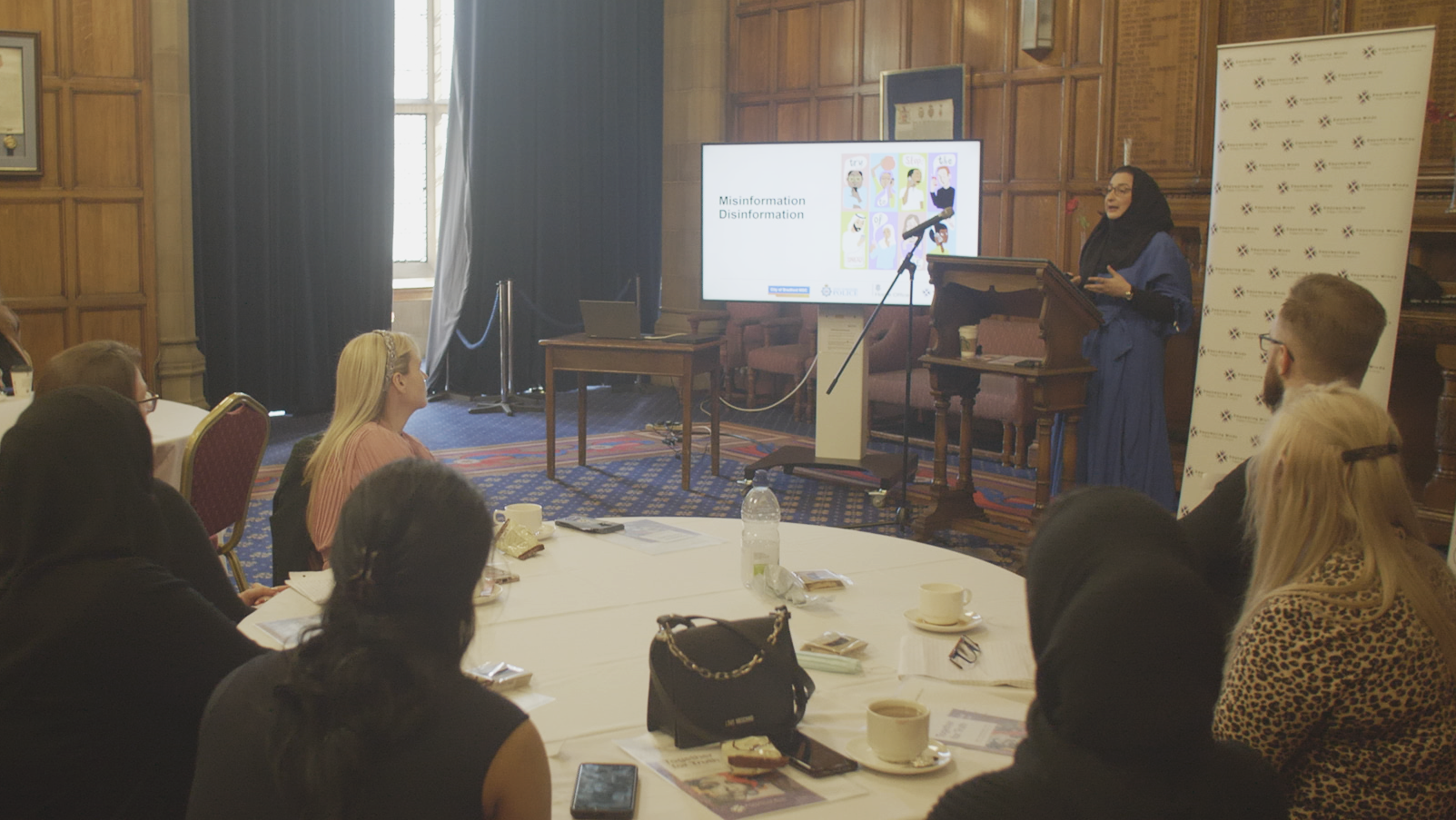This blog post was published under the 2019 to 2022 Conservative government
By Sofia Mahmood MBE, Founder of Empowering Minds
In 2015 I founded Empowering Minds to turn theory into practice and ensure we have the right practice happening in communities. An area of focus was to advocate for the role that families can play in building resilience to hatred and radicalisation. The importance of this role cannot be overstated when vulnerable young people are increasingly targeted for recruitment and influenced by extremists, particularly those using online platforms, forums and chatrooms.
Growth in the use of smart phones and gaming consoles in recent years means many young people are spending more time online, and the coronavirus pandemic has seen an increased reliance on the internet. Extremist groups have capitalised on this situation and are using platforms where they can hide behind encryption to promote their hateful ideologies and extremist narratives.
Extremist groups are clear – they seek to divide communities and fuel hatred by preying on young people. They manipulate how young people think by offering them “easy” answers to difficult questions on topics such as identity and belonging and can offer a false sense of social inclusion.
The ability extreme groups have to share this kind of information – and the absence of scrutiny – makes the work Empowering Minds delivers even more urgent. Our work seeks to develop mother’s critical thinking skills and educates them on what to do when they, their friends, or their children are exposed to extremist content.
Not only can families help build resilience to extremism in young people, they can often be the first to spot any worrying changes taking place. We signpost families to websites such as ACT Early and Let’s Talk About It, which provide advice on spotting the signs of radicalisation in young people and real stories of families affected by extremism.
Knowledge = power
Since our ‘Mothers Against Radicalisation’ programme was launched, we have trained hundreds of mothers across the country, creating an open dialogue to instil confidence to have those challenging conversations. It’s never easy to talk to a child about terrorism, but it might help to raise the subject when it’s relevant, perhaps when you both see something on TV. The NSPCC have guidance on talking about terrorism with your child.
We also train mothers to spot the signs of extremism which can include:
- unusual introverted and secretive behaviour
- sharing information which can be detrimental to others
- racial and discriminative behaviour which leads to violence
At a time when extremist groups are able to share misinformation and intolerance so easily on social media platforms and via gaming platforms, I hope that we can inspire young people to have the honest conversations with their parents, friends and teachers so that we can remove the influence of extremist groups.
Next steps:
- Check out Educate Against Hate’s top tips guide for parents on keeping young people safe from extremism.
- Visit Childnet’s guidance on how parents can support young people online.

